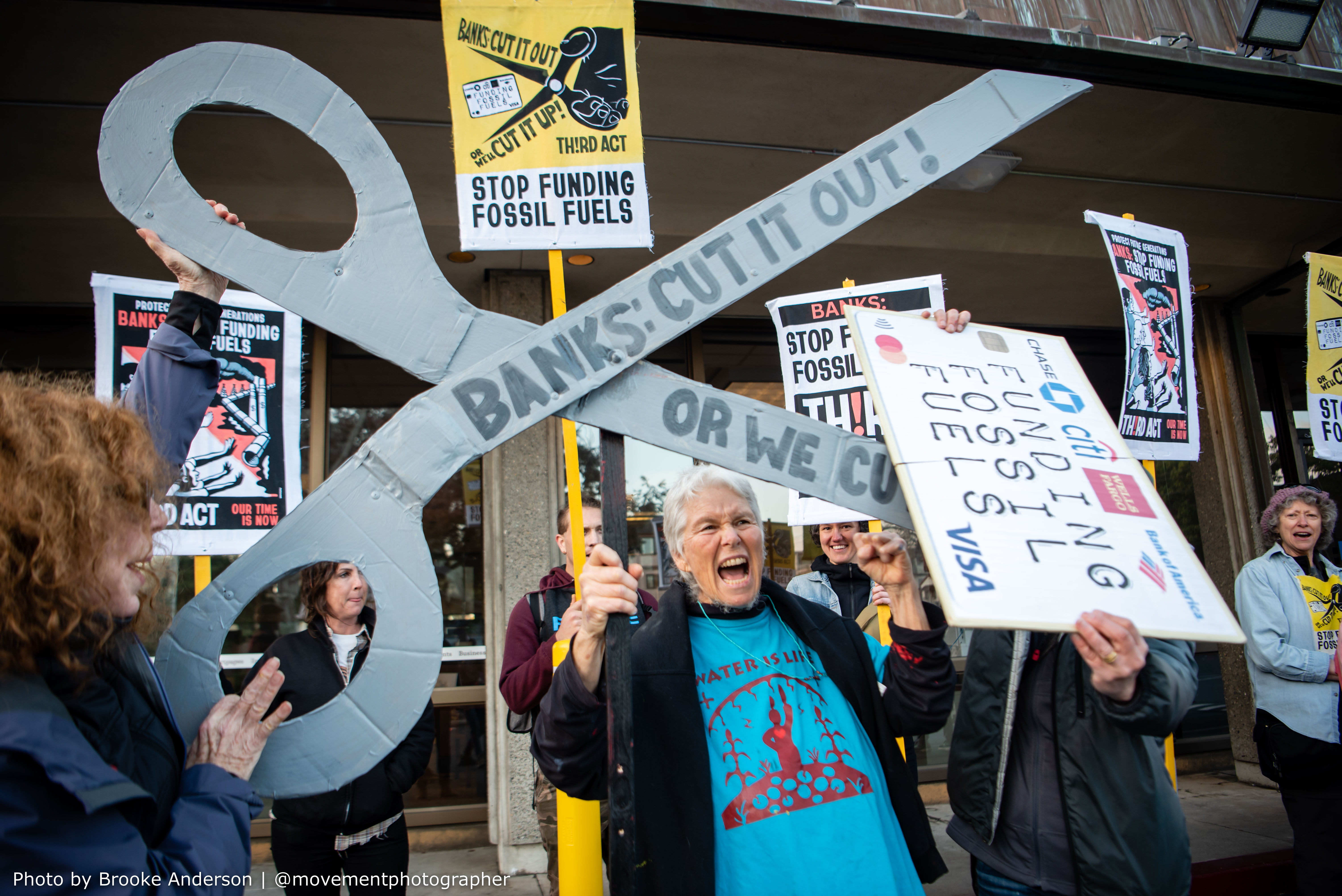For years, we've been asking the biggest US banks — Bank of America, Chase, Citibank, and Wells Fargo — to do more to curb their role in fueling the climate crisis. We don't want these banks to use our money to rob future generations of a healthy and livable planet. We need banks to invest in clean energy, good jobs, and climate solutions — not new pipelines, oil drilling, coal plants, and fracking. But despite the bank’s far-off commitments to reach net-zero emissions by 2050, and their incremental interim targets for 2030, they have mostly continued with business as usual, pouring more money into new fossil fuel expansion that we can’t afford.
So now is the time to escalate: If the big banks won't cut ties with the worst climate polluters, we are threatening to cut our ties with the big banks. Join the Sierra Club, Third Act, and many other partners on March 21st for a national day of action to Stop Dirty Banks as we gather to show the strength of our movement.
As an added bonus, if you’re in or around Washington, DC, the Sierra Club's new executive director, Ben Jealous, will be joining and speaking at that event. So RSVP here and stop by to hear him rally the crowd alongside other climate champions like Third Act founder Bill McKibben.📍 The rally is from 11am-1230pm on Tuesday, March 21, Franklin Park, 1332 I St NW, Washington DC.
👀 Explore Stop Dirty Banks events across the US
Take action
You don't need a credit card or bank account with these banks in order to join us — we need people of all ages, races, and means to put the pressure on banks to stop financing climate chaos. Bring your friends, energy, and creativity! In order to move the big banks to take urgent climate action, it’s going to require serious people power.
Here's what we're hoping for on March 21st: Groups organizing to cut up their credit cards (symbolically or actually) in as many iconic places as we can imagine – think underwater on a threatened marine ecosystem if you have diving skills, or alongside the remaining damage from a recent fire or flood in your area. We also need lots of people outside and inside bank branches, in cities and towns across the country. Whether you rally with two people or two thousand, we want to make sure these big banks are feeling the pressure all across the country.
✊ Join a Stop Dirty Banks event in a location near you
Again, you do not need to be a cardholder or account holder with one of these big banks to participate. The point of this day of action — and of the actions that will follow — is to collectively make some noise, raise the visibility of the dirty banks' role in climate destruction, and grow our movement for climate justice and solutions. This is going to be a fun and powerful day with art, songs, and community, all amplifying our collective call to the banks: Quit funding fossil fuels or we will quit you!
What's next
These demonstrations are only the beginning of what each of us can do to hold the big banks accountable for their role in the climate crisis. After this day of action, we’ll move on to organizing the banks’ biggest clients and shareholders, state and city treasurers, and major companies with climate pledges of their own, to add their weight to this fight.
If you want to learn more about how to engage with the banks’ biggest shareholders during their annual meetings this spring, check out and take action on the Stop the Money Pipeline coalition's Shareholder Showdown campaign, and stay tuned for more actions to come.
Spring is the time when shareholders – which includes everyday people with investments, as well as public pension funds, corporate asset managers, and others – vote on companies’ boards of directors and how they address important issues like climate change. It’s a critical moment to push companies to reduce their climate pollution and end the burden of fossil fuels on frontline communities. This year, we’re closely watching the shareholder meetings of major US banks to stop the flow of money to fossil fuel expansion, protect Indigenous rights, stop banks from greenwashing their emissions targets, and make sure they have a real plan to achieve their climate goals.
By working together, we can make sure the banks do the right thing for climate and environmental justice. Stay tuned for more upcoming actions to help take this fight to the next level.
